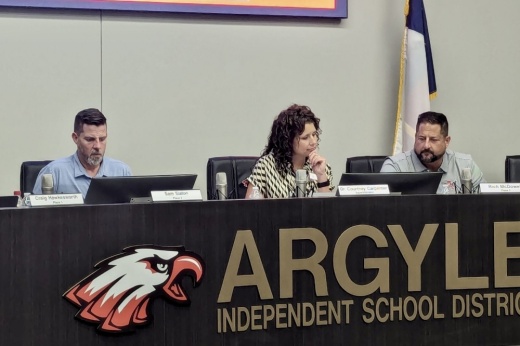Last month, the district began looking at different compensation plans for fiscal year 2024-25 in an effort to increase retention and offset an average 9%-10% increase in insurance rates.
“We took three options and focused those down to two options,” Deputy Superintendent Chris Daniel said.
The details
Normally, compensation adjustments are made using maintenance and operations budget funds, Daniel said, but given the financial constraints plaguing districts across the state due to a lack of increased funding, AISD must dip into its savings. The plan includes:
- $1,000 for teaching staff
- $500 for paraprofessionals and auxiliary staff
- $50-per-month increase to health insurance contribution
Zooming in
For the second option, the district approved a 2% of midpoint raise resolution. However, to fund a percentage-based raise, the district will need to call and pass a VATRE, Daniel said. A VATRE serves as a local revenue stream option outside of state funding. AISD has not called a VATRE since 2012. The district must call the tax rate election by Aug. 19 if it wishes to pursue that option with the issue going before voters in November.
If the VATRE is approved by voters, the 2% raise would occur in the middle of the school year.
“A resolution is required ahead of time to be able to change the compensation plan in the middle of a year,” Superintendent Courtney Carpenter said.
While the resolution must be approved before calling the tax rate election, if the voters decide against the VATRE, then the district would not move forward with the percentage raise, Daniel said.
Also of note
Should the VATRE pass, the district would use revenue to fund the percentage raise as well as replenish the $890,000 in savings used to fund the one-time payments, Carpenter said.
Before the district can call a VATRE, it must conduct an efficiency audit, which is designed to provide information to voters and compares prior year information, Chief Financial Officer Liz Stewart said. The board approved Hankins Eastup Deaton Tonn Seay & Scarborough, LLC as the auditing firm for this task at the meeting as it was the final opportunity before the July 5 deadline.
The audit’s cost is dependent on the number of hours it takes but should not exceed $20,000, Stewart said.





